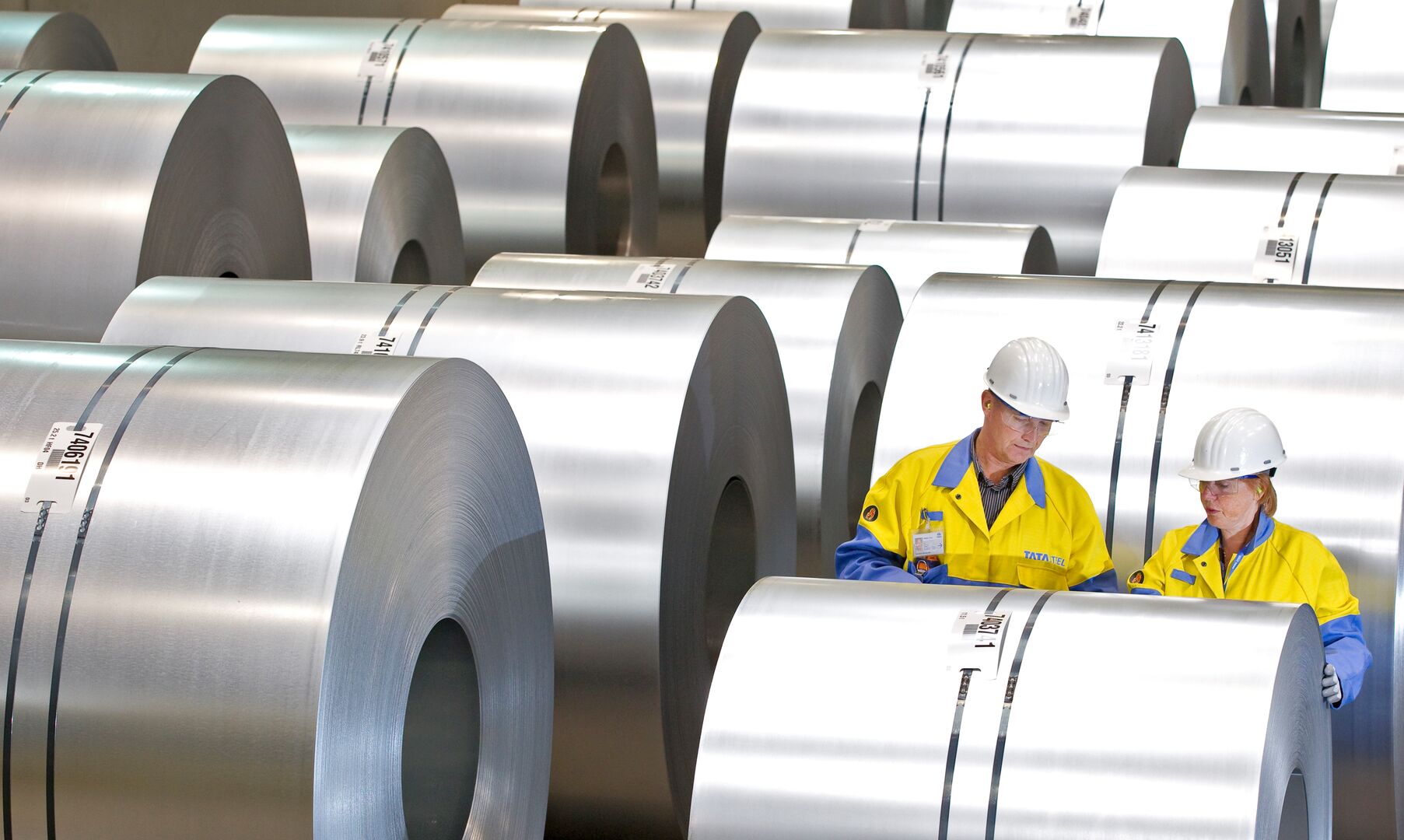EN-Corporate-Sustainability-Sustainable Steel Solutions
Discover Tata Steel’s sustainable solutions to help reduce your Scope 3 emissions.
“We are excited to take our partnership with Wuppermann to new heights,” said Tom Eussen, within Tata Steel Nederland’s Board of Management responsible for Tata Steel IJmuiden and the Downstream operations. “Over the past 20 years, Wuppermann has become a key customer and sparring partner for us. This is reflected in our efforts to develop initiatives that are valuable to both of us, such as sharing production data and piloting a scrap metal buy-back programme. These initiatives help us make our steel production process more sustainable today.”
“A strong and long-lasting partnership like the one between Tata Steel and Wuppermann is the right basis for implementing such important digitalisation and circularity projects across several stages of the value chain and to realise their full potential”, adds Karsten Pronk, managing director of Wuppermann Staal Nederland.
Tata Steel and Wuppermann recently signed a new three-year contract for the supply of hot-rolled strip steel with close thickness tolerances and high surface quality, continuing the company’s role as the steel processor’s primary supplier. Part of the supplied volume will be Zeremis® Carbon Lite – steel with an allocated CO2 footprint reduction of up to 90%1) – as Wuppermann and its customers increasingly focus on sustainability within their supply chains. In addition, Tata Steel and Wuppermann have renewed their tolling agreement.
The companies are also deepening their collaboration through two strategic initiatives. Tata Steel will share specific production data of the supplied steel, enabling Wuppermann to further optimise steel processing efficiency and reduce lace scrap, thereby achieving cost savings and a more sustainable production process.
Furthermore, the two companies have agreed to pilot operational activities related to a scrap buyback programme, aiming to establish a closed-loop system. This aligns with Tata Steel's commitment to serve its customers ever better and its ambition to increase the use of scrap in steel production. Recycling each tonne of scrap represents a reduction of 1.6 tonnes of CO2 compared to steel made from iron ore.
High-quality steel is crucial for multiple industries
Steel plays a vital role in a wide range of industries, including automotive and solar energy. The use of high-quality steel is important here, for processing and final finishing. Tata Steel supplies such steel to Wuppermann, which galvanises the steel. The processed steel then goes to manufacturers for final processing.
Wuppermann Group is a Germany-based steel processor that is leading in CO2 efficient hot dip galvanizing of hot strip. Operating five production sites in the Netherlands, Austria, Poland and Hungary – with Wuppermann Staal Nederland being the largest producer of galvanised strip steel within the group – Wuppermann supplies customers across Europe and the US.
1) This is the maximum reduction for the sum of scope 1, 2 and 3 emissions. For the sum of scope 1 and 2 emissions, this represents a 100% reduction.
